First DUI in Pennsylvania
The penalties for a first-time DUI are generally less severe than those imposed after a second DUI offense. But, the consequences for a first offense vary depending on the specifics of the charge against you, and can be serious.
The best way to get reliable information about the specifics of your case and the penalties you may be facing is to talk to an experienced Pennsylvania DUI lawyer as soon as possible after your arrest. The information here will give you a general idea of what to expect.
What is Driving Under the Influence in Pennsylvania?
In Pennsylvania, driving under the influence means any of the following:
- The driver is under the influence of alcohol to such an extent that their ability to drive safely is impaired
- The driver is under the influence of any controlled substance to the extent that their ability to drive safely is impaired
- The driver is operating a vehicle with a blood alcohol concentration (BAC) of .08 or greater
- The driver is operating a vehicle with any amount of a Schedule I controlled substance in their blood
- The driver is operating a vehicle with any amount of a Schedule II or Schedule III controlled substance in their blood if that drug has not been prescribed to them
- The driver is operating a vehicle while under the influence of a solvent or noxious substance
A driver may also be convicted of DUI based on the combined impairment caused by alcohol and controlled substances or by a combination of drugs.
For some drivers, the BAC level is lower. For example, a minor may be charged with driving under the influence with a BAC as low as .02. And, the driver of a commercial vehicle may face a DUI conviction with a BAC as low as .04. If the commercial vehicle is a school bus or other school vehicle, that drops to .02.
You Don’t Have to Be Driving to Get a DUI
While the descriptions of the violations above use the word “driver” for simplicity, you don’t actually have to be driving a car to be charged with and convicted of DUI in Pennsylvania. The DUI statute prohibits a person under the influence as described above from driving, operating, or being in actual physical control of the movement of a vehicle. “Actual physical control” is determined on a case by case basis, but clearly does not require that the vehicle is in motion.
There’s More than One Type of First-Time DUI
In Pennsylvania, first offense DUIs are charged differently depending on the driver’s BAC. Here’s how a higher BAC can impact the consequences of a first DUI offense.
General Impairment (BAC of .08-.99 or unknown)
The penalties for a first offense DUI with BAL below .10 or undetermined are:
- Up to 6 months of probation
- A $300 fine
- Alcohol Highway Safety School
- Substance abuse treatment if ordered by the court
High BAC (BAC of .10-.159)
Pennsylvania treats cases involving more serious impairment more harshly. So, the penalties associated with a DUI with BAC of .10 or greater (but less than .16) are:
- 48 hours to 6 months in jail
- A fine of $500 to $5,000
- A 12 month driver’s license suspension
- Alcohol Highway Safety School
- Substance abuse treatment if ordered by the court
Highest BAC (BAC of .16 or greater)
A driver with no prior DUI offenses who is convicted of DUI with a BAC of .16 or greater faces:
- 72 hours to 6 months in jail
- A fine of $1,000 to $5,000
- A 12 months driver’s license suspension
- Alcohol Highway Safety School
- Substance abuse treatment if ordered by the court
All of the crimes listed in this section are ungraded misdemeanors, which creates the flexibility to assign offense-specific penalties. But, in some circumstances, a DUI charge may be a misdemeanor of the first degree–the most serious misdemeanor charge–even if it is a first offense.
For example, a first-time DUI is a misdemeanor of the first degree if there is a minor in the vehicle at the time of the offense. That means a possible fine of $1,500 to $10,000, and a possible prison sentence of up to 5 years. If the offense is a misdemeanor of the first degree, the driver’s license suspension is extended to 18 months.
Breath Test or Blood Alcohol Test in Pennsylvania
Under Pennsylvania law, a person who operates a motor vehicle in the Commonwealth is considered to have consented to chemical testing for alcohol or controlled substances if a police officer has reasonable cause to believe they are driving under the influence. If the driver is arrested for a first DUI offense and refuses chemical testing, their driver’s license will be suspended for 12 months–longer with a prior conviction or prior refusal.
While the prosecution won’t have the BAC test to use against you in court if you refuse, they can still prosecute. They can tell the judge or jury that you refused the chemical test, and the police officer can testify about signs of impairment they witnessed. The 12-month suspension is valid and continues even if the DUI charges are dropped or the driver is acquitted at trial. If you are convicted, the total suspension may be even longer.
You will have 30 days to appeal your suspension. However, a suspension for refusing a chemical test can be overturned for limited reasons. For example, your DUI lawyer might be able to show that the officer did not have probable cause to arrest you. Or, your attorney might establish that the police did not provide you with the required warnings, or that you did not knowingly and intentionally refuse the test.
Know Your Rights for DUI-Related Testing
First, it’s important to know that you are not required to take field sobriety tests. If you take a field sobriety test and don’t perform well, your failure can be used as probable cause for your arrest and can be used as evidence against you in court.
You are also not required to submit to pre-arrest portable BAC testing during the traffic stop. This test, also, is used to help establish probable cause for arrest.
If you are arrested for DUI, you are required to submit to a chemical test. However, it’s important to know that breath tests and blood tests are treated differently. Refusal of a breath test will result in the consequences described above. However, refusing a blood test triggers these consequences only if the police obtained a warrant for the blood draw.
What to Do After a Pennsylvania DUI Arrest
If you’ve been charged with driving under the influence in Pennsylvania, the first thing you should do is speak with an experienced DUI attorney. If it’s a first offense, especially in the general impairment category where you are not facing jail time or a driver’s license suspension, you may be tempted to accept whatever deal the prosecutor offers and get it over with. But, even a low-level first-time DUI conviction is a criminal conviction, and may have an impact in other ways, such as limitation of employment options and increased car insurance rates. A conviction also puts you at greater risk if you are charged in the future, and even a first offense may carry jail time depending on your BAC.
Remember that not every DUI arrest leads to a DUI conviction. There may be problems with your case that may lead to dismissal, or to a finding of not guilty. For example, if the officer did not have probable cause to stop you, your DUI attorney may be able to get the evidence police gathered as a result of the stop suppressed. That means the jury wouldn’t get to hear about it. Or, the breath test machine may have been faulty, or not properly calibrated, or the test may have been administered incorrectly.
If you plead guilty or enter into a plea agreement, you lose your chance to challenge the officer’s right to stop you, the accuracy of the breath or blood tests, and other issues. Having an experienced DUI lawyer review your case and look for weaknesses and opportunities to fight the charges before you make any decisions preserves your options so you can make an informed decision.
Attorney Jim Bonner Can Help
Jim Bonner is a former Delaware County Assistant District Attorney. That means he knows how the prosecution builds a DUI case, and how to identify the flaws that will weaken their case against you. He understands that effective criminal defense requires more than just knowledge and experience. You also need an attorney who will invest in investigating and preparing your case, and who is willing to fight for you in court.
To learn more about how attorney Jim Bonner can help you, call 610-450-4555 right now.
Search
Office Location
1210 N. Middletown Road, Glen Mills, PA 19342
8 West Front, Media, PA 19063
833-438-6881


